2025-26 Application Closed
Mahan Fellowship -
The Herbold Computational Biology Program of the Fred Hutchinson Cancer Center (Fred Hutch) in Seattle, Washington invites applications for the Mahan postdoctoral fellowship. The fellowship will provide an exceptional individual with an early start on their career as an independent scientist by providing a 21-month stipend to pursue their proposed research project in the laboratory of a Fred Hutch Computational Biologist mentor.
Faculty from the Herbold Computational Biology Program at Fred Hutch must be proposed as primary mentors. University of Washington (UW) affiliate faculty may be proposed as co-mentors; however Fred Hutch faculty must serve as the primary mentor (please refer to eligible faculty mentors list below). The project must be focused on a topic of biological interest, must involve a computational or mathematical component, and may include an experimental component. A laboratory trained scientist may satisfy the computational and mathematical requirement by including a training component in their proposal. Computationally strong candidates may include a laboratory training component as well. The research direction should reflect the interests and ideas of the applicant, although the final research proposal may be jointly designed; see Additional Information for more details on the application process and for a list of potential mentors.
Fred Hutchinson Cancer Center is an independent, nonprofit organization providing adult cancer treatment and groundbreaking research focused on cancer and infectious diseases. Based in Seattle, Fred Hutch is the only National Cancer Institute-designated cancer center in Washington.
With a track record of global leadership in bone marrow transplantation, HIV/AIDS prevention, immunotherapy and COVID-19 vaccines, Fred Hutch has earned a reputation as one of the world’s leading cancer, infectious disease and biomedical research centers. Fred Hutch operates eight clinical care sites that provide medical oncology, infusion, radiation, proton therapy and related services, and network affiliations with hospitals in five states. Together, our fully integrated research and clinical care teams seek to discover new cures to the world’s deadliest diseases and make life beyond cancer a reality.
At Fred Hutch we value collaboration, compassion, determination, excellence, innovation, integrity and respect. Our mission is directly tied to the humanity, dignity and inherent value of each employee, patient, community member and supporter. Our commitment to learning across our differences and similarities make us stronger. We seek employees who bring different and innovative ways of seeing the world and solving problems.
Please direct all questions to Eleanor Vail, Computational Biology Research Administrator.
The Mahan Fellowship is made possible by funding from Mark and Nikki Mahan.
Application Overview
Qualifications
- Applicants must have or be in the process of completing a Ph.D. in a computational, quantitative or biological discipline. The Ph.D. must be awarded prior to the start of the fellowship and must have been awarded no earlier than June 2023.
- Applicants who have held faculty or staff scientist positions are not eligible.
- Fred Hutch Internal applicants – Start date as a postdoctoral fellow at Fred Hutch must be within 12 months of the pre-application deadline.
Key Application Dates
Pre-application Deadline | December 05, 2025 |
Notification to proceed with Full Proposals | December 22, 2025 |
Full Proposal Deadline | January 30, 2026 |
Notification of Final Selection | February 16, 2026 |
Earliest Start Date | July 1, 2026 |
Application Process
Pre-application Phase
Please submit the following materials/information through the Interfolio application portal:
- Curriculum Vitae
- 1-page (maximum) Proposed Research Statement
- 1 Letter of Recommendation
- Select a primary mentor (see list below) through the Interfolio application portal
Pre-application materials are due December 05, 2025
Final Application Phase (if invited)
Upon invitation by the review committee, please submit the following materials/information through the Interfolio application portal:
- 3-5 page Research Statement
- Maximum, single-spaced, font size 11pt
- May be co-written with the proposed mentor
- 2 additional letters of recommendation
(Optional) We highly encourage applicants to contact their selected faculty mentor prior to submitting their final app to discuss the potential collaboration.
Full proposals are due January 30, 2026
Additional Information
- The start date of the fellowship is flexible but should start within 1 year of the award.
- We encourage applicants to contact a potential mentor (see list below) though this is not required.
- Mentors may be contacted to get a statement of interest in the area, to assess the lab resources to see if they are adequate, or other general questions. However, the research idea(s) in the research statement need to be substantively those of the candidate.
- Candidates who are invited to submit a full proposal may work more closely with the mentor at that time.
Eligible Primary Faculty Mentors:
Alice Berger
Daniel Blanco-Melo
Erick Matsen
Evan Newell
Gavin Ha
Jesse Bloom
John T. McCrone
Manu Setty
Melody Campbell
Nasa Sinnott-Armstrong
Ollivier Hyrien
Phil Bradley
Rasi Subramaniam
Robert Bradley
Sanjay Srivatsan
Scott Furlan
Trevor Bedford
Xueqiu Lin
Eligible UW Faculty Co-Mentors:
Alison Feder
Armita Nourmohammad
Ivana Bozic
Kelley Harris
Will DeWitt
Current Fellows
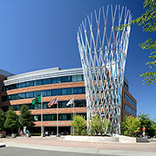
Patrick McDeed
Project: ctDNA-based modeling of genotypic & phenotypic dynamics during mCRPC therapy
Prostate cancer is the second most common cause of cancer mortality among men in the United States. Progression to metastatic castration resistant prostate cancer is lethal with essentially no curative treatment. Novel prostate-specific membrane antigen radioligand therapies (PSMA-RLT) hold promise, but treatment responses are not durable. There is a major unmet clinical need to better understand the molecular changes associated with resistance and to identify biomarkers for predicting which patients will likely derive benefit from these therapies. This project proposes to develop new computational methods and statistical frameworks for the analysis of circulating tumor DNA (ctDNA) obtained from cancer patients as non-invasive “liquid biopsy” to identify genotypic and phenotypic features that can better monitor treatment response and predict therapeutic outcomes. The development of these ctDNA-based prediction and serial monitoring tools will provide insights to improve treatment strategies and management of patients receiving PSMA-RLT therapies.
David Mai
Project: High-throughput DNA synthesis in picoliter droplets
Current DNA synthesis is expensive and limited by sequence fidelity and length. We are developing a platform for multiplex assembly of high-fidelity DNA sequences at kilobase length scales using new barcoded assembly reactions in semi-permeable capsules. This platform can accelerate the screening of biomolecular designs for many applications, from basic biology to therapeutic discovery.
Previous Fellows
Past Mahan fellows brought scientific and academic perspectives from around the world. They explored a variety of biological topics, from infectious disease to genetic expression. Students have gone on to pursue careers in laboratory science, which some staying on at Fred Hutch labs.
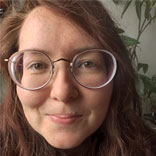
Assya Trofimov
To adequately protect the body from invaders, the adaptive immune system is trained to distinguish the immune self from non-self. T cell lymphocytes govern the adaptive immune system and are taught to make this distinction in the thymus during a process called positive and negative selection. A person’s T cell repertoire - is an almost unique fingerprint based on various environmental factors such as previous infections, but also genetic factors such as sex and HLA haplotype, which influence the positive and negative selection process. In my research, I hope to get more insights into how the characterization between the self and non-self is done. My project will aim to model the relationship between an individual's genetic factors and their repertoire and gain a little more understanding of the basis of immune recognition
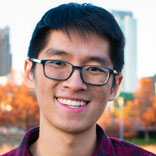
Matthew Chan
Project: Structural and functional mechanisms of ribosome stalling
Accurate protein expression is essential for maintaining all cellular processes and is dependent on the stability of mRNA during translation. As such, the synthesis of proteins via the ribosome must be tightly regulated to prevent the accumulation of aberrant proteins. While significant progress has been made to uncover the ribosome’s role in gene regulation, protein synthesis, and antibiotic drug development, there is a lack of understanding on how the ribosome itself is regulated by the encoded peptide sequence. Furthermore, the mechanisms of ribosome-associated quality control pathways that initiate reduce factors to alleviate stalled and collided ribosomes remain elusive. My research aims to combine biophysical, computational, and genomic approaches to illuminate the structural dynamics of ribosome stalling and its implications on translation regulation.
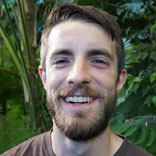
David R. Glass
Project: Comprehensive characterization of T cells from patients undergoing checkpoint blockade immunotherapy
Checkpoint blockade immunotherapy is a revolutionary cancer treatment that activates a patient’s own immune system to destroy tumor cells. While highly effective in some cases, it is not entirely clear why this treatment sometimes fails to mobilize a patient’s T cells. To identify differences between these responders and non-responders, I will apply single-cell multi-omic sequencing to comprehensively characterize T cells from cancer patients undergoing checkpoint blockade immunotherapy. This study will reveal the key features of effective immunity before and after treatment, guiding development of new immunotherapies and enabling identification of predictive biomarkers to help doctors choose the right approach for each patient

Tal Einav
I study the n-body problem of our immune system. How does human serum, with its millions of different antibodies, protects us against pathogens? A lot of groups are examining how single antibodies fight flu or HIV, but few are investigating collective antibody action. As the field moves in this direction, it will shed light on the full repertoire our immune system unleashes against viral invaders.
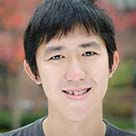
Guo-Liang Chew, Ph.D.
It is paradoxical how the misexpression of the same gene (DUX4) can cause disparate cellular phenotypes in two different diseases: muscle wasting in Facioscapulohumeral Muscular Dystrophy (FSHD), but uncontrolled cell proliferation in a subtype of B-cell precursor Acute Lymphoblastic Leukemia (BCP-ALL). By analyzing the RNA expression in patient samples from both these diseases, Guo-Liang aims to understand the molecular basis of DUX4-induced pathology in both diseases, as well as to use the insights gained from one disease to develop therapies for the other.

Yapeng Su
My research focuses on investigating the plasticity and heterogeneity of therapeutic T cells during adoptive cell therapy within solid tumors. I am working on using systems-level big data at bulk and single-cell resolution to map the signaling dynamics, epigenetic landscape of the therapeutic T cells within the context of the tumor microenvironment. Overall, my project will help us understand how to better engineering our T cells as a powerful weapon to treat cancer.
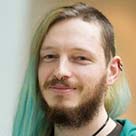
Gytis Dudas, Ph.D.
Sequence data from emerging infectious disease epidemics are becoming a universal tool for gaining insight into how pathogens spread and how to control them efficiently. The project focused on rapidly evolving RNA viruses and how their evolution can be used to understand their patterns of transmission. The West African Ebola virus epidemic of 2013-2016 was a primary focus of the project, where the factors affecting the virus' ability to spread and proliferate within the region were determined. Simultaneously, in collaboration with Nathan Grubaugh and Kristian Andersen at Scripps, as well as researchers from University of Oxford, the project also investigated the nature of a Zika virus outbreak in Florida in 2016. The final part of the project focusing on reconstructing the epidemiology of Middle East respiratory syndrome-associated coronavirus (MERS-CoV) at the interface between its two known major hosts, humans and camels, is currently in review.
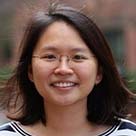
Ying Qi "Shirleen" Soh, Ph.D.
My research focuses on how viruses such as influenza evolve to infect diverse host species. Zoonotic transmission of influenza from avian and swine hosts to humans have the potential to result in pandemics with severe public health consequences. I am working to map the evolutionary pathways by which influenza can adapt to new species, and using this map to assess adaptation and thus pandemic risk of novel influenza strains. Overall, these studies will help us understand the specifics of influenza adaptation, and more broadly, how viral evolution is shaped by host genetics.